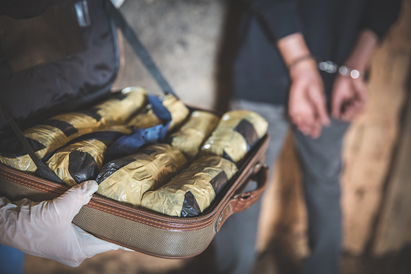
UN Office on Drugs and Crime:
Drug Trafficking in Southern Asia
Drug trafficking is an issue that has plagued the international community since the mid-1900s. In Southern Asia, a dramatic escalation in the illegal trade of substances including heroin and methamphetamine threatens to impact individuals living far beyond those borders. Notably, drug trafficking organizations have turned away from plant-based drugs, focusing more on the distribution of stronger, more harmful synthetic drugs. In Myanmar alone, almost 200 tons of illegal substances were seized in 2021. Delegates must work together in order to eliminate the complex networks of illegal drug trade.
Background Guide
Drug Trafficking in Southern Asia
Drug trafficking is an issue that has plagued the international community since the mid-1900s. In Southern Asia, a dramatic escalation in the illegal trade of substances including heroin and methamphetamine threatens to impact individuals living far beyond those borders. Notably, drug trafficking organizations have turned away from plant-based drugs, focusing more on the distribution of stronger, more harmful synthetic drugs. In Myanmar alone, almost 200 tons of illegal substances were seized in 2021. Delegates must work together in order to eliminate the complex networks of illegal drug trade.
Background Guide
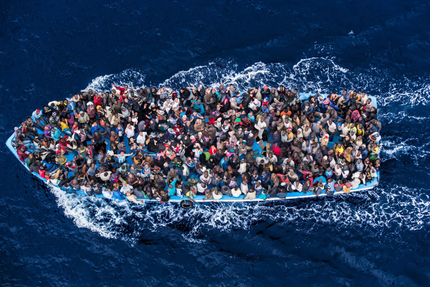
UN High Commissioner for Refugees:
Mediterranean Refugee Crisis
Due to conflicts in Syria, Afghanistan, Somalia, and other African and Middle Eastern countries, millions of migrants have attempted increasingly dangerous crossings of the Mediterranean to Europe, with over 3,700 migrants dead in 2022 alone. Mistreatment of migrants in North African host countries and Europe’s recent economic support for these countries in exchange for border control further raise questions on the role and responsibility of the global community in the protection and resettlement of migrants. Together, delegates will come up with feasible solutions that address humanitarian concerns while balancing geopolitical interests.
Background Guide
Mediterranean Refugee Crisis
Due to conflicts in Syria, Afghanistan, Somalia, and other African and Middle Eastern countries, millions of migrants have attempted increasingly dangerous crossings of the Mediterranean to Europe, with over 3,700 migrants dead in 2022 alone. Mistreatment of migrants in North African host countries and Europe’s recent economic support for these countries in exchange for border control further raise questions on the role and responsibility of the global community in the protection and resettlement of migrants. Together, delegates will come up with feasible solutions that address humanitarian concerns while balancing geopolitical interests.
Background Guide
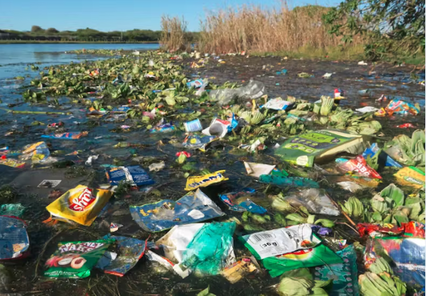
UN Environmental Programme:
Plastic Pollution
Plastic pollution had already been a problem for decades until its discovery in the late 1960s. Ever since the discovery of plastic pollution, this issue has only worsened. Fourteen million tons of plastic end up in our oceans every year—an amount equivalent to almost eight million hippos! This is only a fraction of the issue. Plastic pollution has also been seen as contributing to climate change, a problem that has become ever more prominent throughout recent years. The health of the planet and of people are put in greater peril as the problem of plastic pollution increases. Delegates will collaborate to solve this problem and curb its menacing threats. Finding solutions to this issue will be essential to preserve our world and keep it safe.
Background Guide
Plastic Pollution
Plastic pollution had already been a problem for decades until its discovery in the late 1960s. Ever since the discovery of plastic pollution, this issue has only worsened. Fourteen million tons of plastic end up in our oceans every year—an amount equivalent to almost eight million hippos! This is only a fraction of the issue. Plastic pollution has also been seen as contributing to climate change, a problem that has become ever more prominent throughout recent years. The health of the planet and of people are put in greater peril as the problem of plastic pollution increases. Delegates will collaborate to solve this problem and curb its menacing threats. Finding solutions to this issue will be essential to preserve our world and keep it safe.
Background Guide
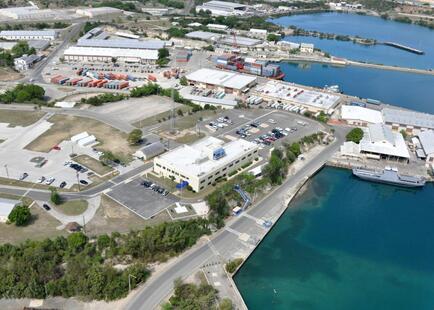
International Court of Justice:
Guantanamo Bay (Dual-Delegation)
In 1898, as part of a war with Spain, the United States conquered a piece of the coast of Guantanamo Bay, Cuba; by 1903, this U.S. holding was recognized by Cuba and Spain. Following the tragic events of 9/11, however, the use of the naval base was brought back to the world’s attention when the U.S. detained around 780 foreign nationals in detention facilities within its Guantanamo Bay Naval Base (GTMO). At the time, U.S. Secretary of Defense Donald Rumsfeld claimed that this procedure was necessary to protect the world from extremely dangerous people and gather intelligence on global terrorism. In the years since, however, there has been fraught debate over both whether the US Navy’s treatment of detainees violated international law and whether the United States may legally operate this base on Cuba’s soil. In the International Court of Justice: Guantanamo Bay, advanced MUN delegates will bring two suits into the ICJ: Saudi Arabia et al. v. United States of America (2023) and Cuba v. United States of America (2023). Dual-delegations will debate international law regarding human rights and territorial disputes in a non-traditional format.
Background Guide
Guantanamo Bay (Dual-Delegation)
In 1898, as part of a war with Spain, the United States conquered a piece of the coast of Guantanamo Bay, Cuba; by 1903, this U.S. holding was recognized by Cuba and Spain. Following the tragic events of 9/11, however, the use of the naval base was brought back to the world’s attention when the U.S. detained around 780 foreign nationals in detention facilities within its Guantanamo Bay Naval Base (GTMO). At the time, U.S. Secretary of Defense Donald Rumsfeld claimed that this procedure was necessary to protect the world from extremely dangerous people and gather intelligence on global terrorism. In the years since, however, there has been fraught debate over both whether the US Navy’s treatment of detainees violated international law and whether the United States may legally operate this base on Cuba’s soil. In the International Court of Justice: Guantanamo Bay, advanced MUN delegates will bring two suits into the ICJ: Saudi Arabia et al. v. United States of America (2023) and Cuba v. United States of America (2023). Dual-delegations will debate international law regarding human rights and territorial disputes in a non-traditional format.
Background Guide
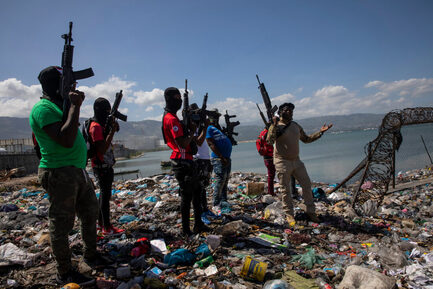
Security Council: Haiti
Since Haïti’s independence from France in 1804—a separation that immediately placed the budding country in crippling and lasting financial debt to its former colonizer—its government has been plagued with instability and corruption. Currently, about 59% of the nation’s population lives below the poverty line. Harsh living conditions have been exacerbated by recurring and immensely destructive earthquakes, particularly the 2010, 7.0 magnitude quake that killed an estimated 100,000-316,000 people. More recently, in 2021, a 7.2 magnitude quake killed 2,248 Haitians. After the assassination of President Jovenel Moïse in 2021, his prime minister, Arial Henry, was eventually instructed by the U.N. and prominent ambassadors to Haïti to assume the presidency in July of that year; he has maintained the position despite not having been elected by the people. Gang violence immediately surged—presently, gangs control about 75% of the nation’s capital, Port-au-Prince, leading to the deaths of thousands and the displacement of hundreds of thousands more. Although some gangs operate independently, many are paid for and armed by corrupt
government officials and politicians, who regard Haïti’s weakened state
under Henry as an opportunity to gain power, eliminate threats to their
agenda, and earn extra money by taking hostages. As of October 2023,
the United Nations Security council approved Kenya’s proposal to
subdue Haïti’s gangs by sending some of their own armed forces.
Despite these efforts, there is still much that must be done to stabilize
the country.
Background Guide
Since Haïti’s independence from France in 1804—a separation that immediately placed the budding country in crippling and lasting financial debt to its former colonizer—its government has been plagued with instability and corruption. Currently, about 59% of the nation’s population lives below the poverty line. Harsh living conditions have been exacerbated by recurring and immensely destructive earthquakes, particularly the 2010, 7.0 magnitude quake that killed an estimated 100,000-316,000 people. More recently, in 2021, a 7.2 magnitude quake killed 2,248 Haitians. After the assassination of President Jovenel Moïse in 2021, his prime minister, Arial Henry, was eventually instructed by the U.N. and prominent ambassadors to Haïti to assume the presidency in July of that year; he has maintained the position despite not having been elected by the people. Gang violence immediately surged—presently, gangs control about 75% of the nation’s capital, Port-au-Prince, leading to the deaths of thousands and the displacement of hundreds of thousands more. Although some gangs operate independently, many are paid for and armed by corrupt
government officials and politicians, who regard Haïti’s weakened state
under Henry as an opportunity to gain power, eliminate threats to their
agenda, and earn extra money by taking hostages. As of October 2023,
the United Nations Security council approved Kenya’s proposal to
subdue Haïti’s gangs by sending some of their own armed forces.
Despite these efforts, there is still much that must be done to stabilize
the country.
Background Guide
Joint Crisis Committee: Roarin' Chicago
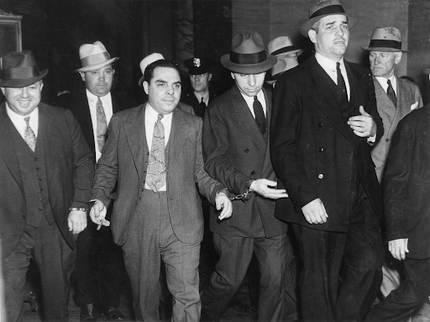
The Chicago Outfit:
Whaddya know, it's the Roarin' Twenties, and Al Capone has just taken over Chicago's most infamous mob. As Prohibition is in full swing, the Chicago Outfit is freely enjoying the bootlegging business. But other families are also reaping the profits of the illegal alcohol trade. Which families will survive? Which will get taken down by the Feds? Which will get taken down by each other? And, of course, will you be able to elevate your family to become the kings of bootlegging? Good luck and don’t get taken for a ride.
Background Guide
Whaddya know, it's the Roarin' Twenties, and Al Capone has just taken over Chicago's most infamous mob. As Prohibition is in full swing, the Chicago Outfit is freely enjoying the bootlegging business. But other families are also reaping the profits of the illegal alcohol trade. Which families will survive? Which will get taken down by the Feds? Which will get taken down by each other? And, of course, will you be able to elevate your family to become the kings of bootlegging? Good luck and don’t get taken for a ride.
Background Guide
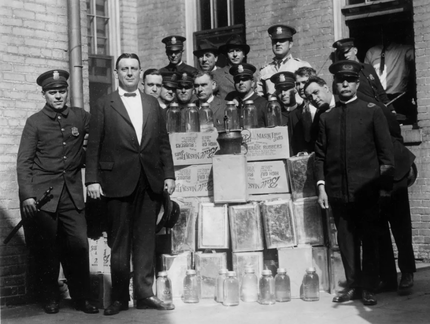
Chicago Law Enforcement:
It's the 1920's, and Prohibition is in full effect. Mobs around Chicago have fully developed into organized bootlegging operations. To counter this uptick in crime, the Chicago Police Department and the Federal Bureau of Investigation have worked together to try and stop organized crime gangs throughout the city and overcome the obstacle of widespread bribery. However, smaller-scale corruption within the ranks of local police officers and city officials has allowed many criminals to go unpunished. Will tensions between city and federal perspectives be put aside? Can you recruit willing informants? And will crime in the Windy City be put to an end? Good luck, and always watch your back…
Background Guide
It's the 1920's, and Prohibition is in full effect. Mobs around Chicago have fully developed into organized bootlegging operations. To counter this uptick in crime, the Chicago Police Department and the Federal Bureau of Investigation have worked together to try and stop organized crime gangs throughout the city and overcome the obstacle of widespread bribery. However, smaller-scale corruption within the ranks of local police officers and city officials has allowed many criminals to go unpunished. Will tensions between city and federal perspectives be put aside? Can you recruit willing informants? And will crime in the Windy City be put to an end? Good luck, and always watch your back…
Background Guide